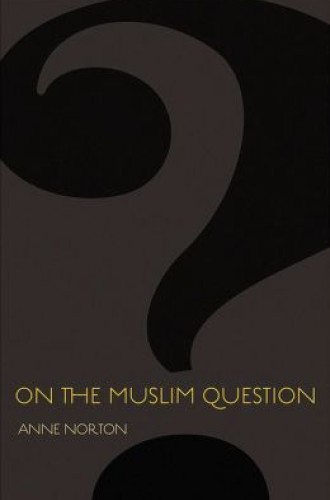On the Muslim Question, by Anne Norton
The “Jewish question” was long a topic of concern in post-Enlightenment political thought. Jews were the unassimilated other that called into question the impartiality, universal rationality and secularism of modern political theory and practice. Anne Norton argues that the “Muslim question” has arisen as a locus of similar anxieties about national insecurity, threat from a foreign other, and the danger to democracy of fanatical religious irrationality. Like modernity’s Jew, today’s Muslim is more a projection than a reality, and the resulting distortions are unfair to actual Muslims both in our midst and beyond our borders. It is a sense of misrepresentation and injustice, along with a haunting awareness that European handling of the analogous Jewish question turned out so badly, that motivates Norton’s investigation of how the Muslim question is manifested.
On the Muslim Question is not so much an investigation of Muslims as it is an investigation of the West—European and North American—and its anxieties about Muslims. News media story lines and public intellectuals’ warnings about Islam in many cases collapse in the light of Norton’s analysis.
Sometimes Norton, a professor of political science at the University of Pennsylvania, states the obvious: that Western critiques of Muslim attitudes toward human rights reveal a double standard, or that criticisms of Swiss modernist Muslim intellectual Tariq Ramadan are patently unfair because they are based not on the content of his writings but on his being the grandson of the founder of the Muslim Brotherhood. At other times, she carefully presents evidence that counters received accounts of famous events—as when she shows that the Danish cartoons of Muhammad did not result in mass violence against Westerners in 2006 and that those events were largely the result of intentional and repeated provocation by Danish instigators.






